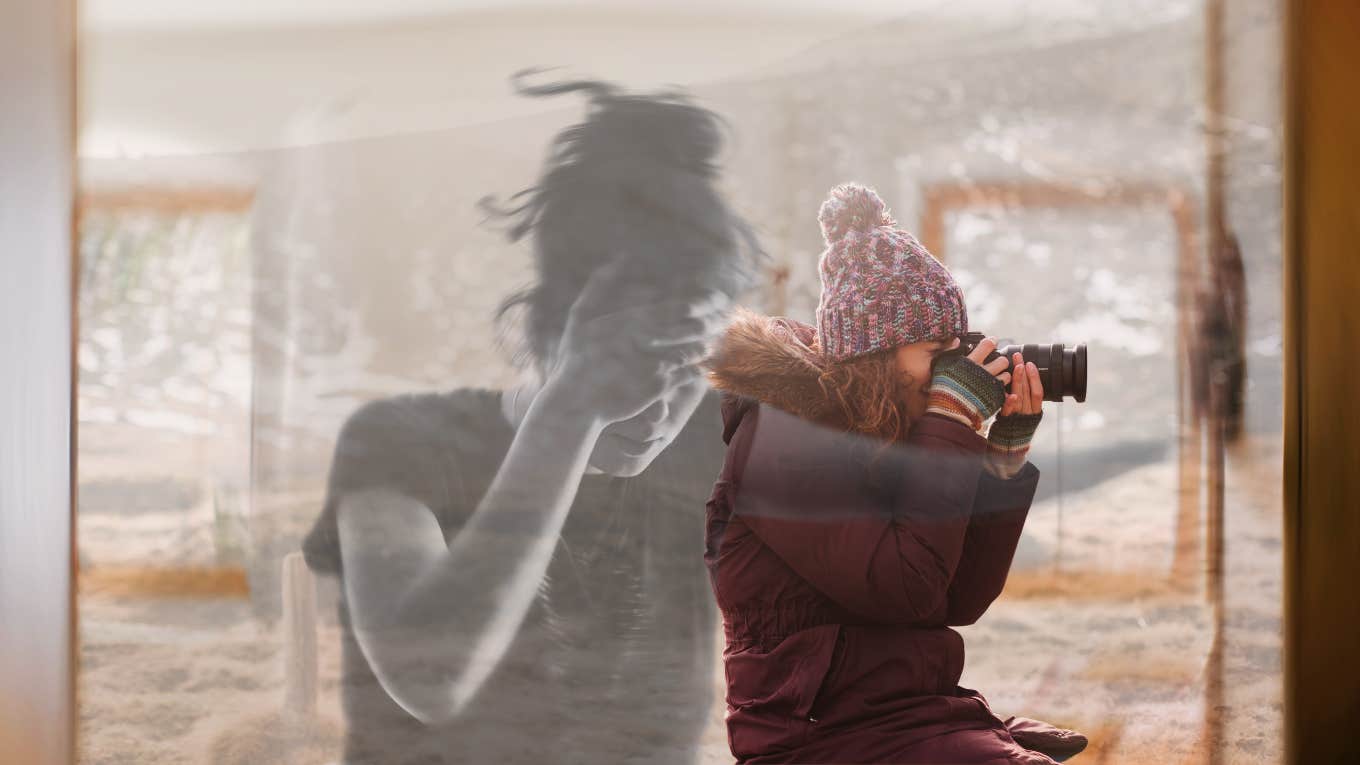I Moved Across The World, Fell Apart, And Found Freedom
Moving is a chance to leave behind past lifetimes, old baggage, and get a fresh start.
 Tunatura | Shutterstock, evablancophotos | Canva
Tunatura | Shutterstock, evablancophotos | Canva The act of moving — whether to a new home, city, or country — goes beyond a packing list, farewell parties, and acquainting yourself with a new neighborhood. This is a period of grace, a window in time where one can allow oneself to expand, transform, change, and usher a sense of newness where it is sorely needed.
I thought I understood this in a way many people could not. After all, I was a veteran mover and packer — having begun moving and settling down when I was 6 months old when my family first moved as expatriates to Melbourne and continued to do so every few years around Asia until I was a junior in high school. With my family, I learned each new country was an adventure of flavors, languages, and landscapes. We created networks of friendships that have lasted across countries and time zones. I learned keeping in touch was essential because our life was so transient.
However, when I moved to Switzerland at the end of 2015, everything I believed to be true about how I felt about moving and my capacity for embracing the new was thoroughly tested. Arriving during winter from Singapore was a shock.
For instance, I did not count on the fact that when I went to work in the morning, it would be as dark as when I got home from work. I also did not fully understand what impact this would have on someone like me who grew up in tropical sunshine. Amidst all this, I was making an effort to make new friends: I would try dance lessons, go snowshoe hiking, and go to socials for new people in town like me.
One day in January 2016, I was on my way to meet some new friends in Luzern, when my wallet was pick-pocketed just as I was about to pay for my train ticket. It was devastating, to feel as if anything I needed for identification or payment, was no longer available to me.
A week later, I had my first seizure in Switzerland.
My seizures are triggered by stress. I was home alone. I did what I normally do; I tried to reach a neurologist to schedule an exam. I was told the next available appointment was in March. I pleaded to see the doctor, particularly as this was my first seizure in the country — and felt quite insecure. He relented and found an appointment the following week.
The day of the appointment it was five degrees with windchill, so it felt like it was five below. When I checked the website, there wasn’t an address for the doctor’s office, or at least I didn’t recognize one. You have to remember, I just had a seizure. I remember going down from the tram and realizing it was a long uphill street. I timed it so I would give myself an hour to find the office, in the off chance I would get lost.
After close to an hour of searching, I thought I found the office, I climbed the stairs and realized I was again at the wrong address. I turned around, slipped, and fell six steps. A man on the street picked me up and I was crying, incomprehensible and limp, unable to stand. We communicated in sign language as he spoke no English, and I knew very little German. My phone rang, it was the doctor’s office looking for me and the kind man spoke to them and brought me to the doctor. When I got to the doctor, I did my tests, and the nurse asked me if she should help me as my knees, shins, and hands were bleeding profusely. In my shock, I had not noticed.
The doctor then reviewed my tests, He said, “Your tests are excellent. So you had a minor seizure, it’s OK. You are very healthy.” I waited for the litany of don’ts that normally come after a seizure — what I had become used to over the years: Don’t exercise too much. Don’t over-exert yourself. Don’t drink. Don’t stay out. If you drive, don’t. When they didn’t come, I asked him, are there things I shouldn’t be doing as a result of my seizure?
Instead, for the first time in my life, I heard a neurologist say: “No, do everything you want. Live. You are perfectly healthy. Why should you stop doing what you want to do?”
I had never heard anything so liberating in my life. All of a sudden, whatever I felt I was mourning: the loss of the sun, the loss of my wallet, the loss of the familiar — was overshadowed by this feeling of freedom. I felt my spirit soar.
Indeed, it was time to see that it was time to live, to look at my new city with new eyes. To not think of the old limits I had lived with for so long, but to believe that beginning now, all was possible.
After that things began to turn for the better, I found my tribe, including an amazing yoga studio where I found balance, strength, and friends, I began traveling around Switzerland, on hikes with camera in tow, rediscovering my joy in photography.
 BublikHaus / Shutterstock
BublikHaus / Shutterstock
I gladly received friends and family who traveled from Asia and North America and showed them the corners I loved in Zurich and beyond, and I stopped mourning the ocean because I discovered the pleasure of swimming and sunning by the lakes and rivers around.
What did moving to Switzerland and having an epileptic seizure teach me?
To truly live and let go of all that was holding me back.
To live freely.
Melissa Gil Schmidiger is a leadership coach, global marketing and innovation executive, and contributor to YourTango. With over 25 years of experience leading international teams and coaching senior leaders, Melissa empowers high-achieving women to advance their careers and cultivate resilience and has written for Medium and Huffington Post.

